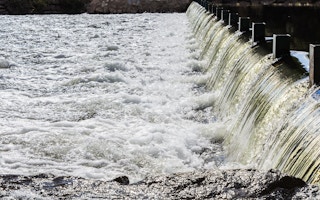From the violation of indigenous people’s rights to death threats and child labour, the renewable energy sector has been called out for its dirty deeds in the realm of human rights.
When it comes to attacks and intimidation of human rights defenders, the sector is the third-worst, coming in only behind the mining and agribusiness sectors, said the Business and Human Rights Resource Centre, an international non-governmental organisation (NGO).
In a report released this week, it urged investors to step up to ensure the world’s energy transition is “not only fast, but also fair” and offered a guide on key questions to ask before ploughing capital into projects.
Since 2010, the NGO has identified 152 allegations of human rights abuses related to renewable energy projects.
The allegations extended across wind, solar, bioenergy, geothermal and hydropower.
Latin America notched the highest number of allegations, its 91 cases making up 60 per cent of the total. Southeast Asia was second with 38 allegations since 2010, making up a quarter of the total.
More than a third (14) of the allegations from Southeast Asia came from Laos and all were related to hydropower. Malaysia and Myanmar were next, with eight and six allegations, respectively, also related to hydropower.
With the highest global installed generation capacity of 1,172GW in 2018, hydropower projects face a number of “serious human rights risks”, said the report’s authors, Annie Signorelli and Eniko Horvath of the Business and Human Rights Resource Centre.
Amid growing debate on whether hydropower—especially large-scale projects—should even be categorised as renewable energy given concerns over high levels of greenhouse gas emissions and the resulting damage to ecosystems, the projects have been linked to deaths, threats and intimidation, land grabs, dangerous working conditions and poverty wages, as well as harm to indigenous peoples’ lives and livelihoods.
The Xe-Pian Xe-Namnoy dam collapse in Laos last July, for instance, killed at least 40 people and displaced over 6,600.
“From the outset, communication and consultation with potentially impacted communities was fraught and often seen by communities as inadequate,” stated the report, titled Fast and Fair Renewable Energy Investments: A Practical Guide for Investors. Some contend that there were warning signs of the dam infrastructure failing days ahead of the collapse, but no precautions were taken to ensure the safety of civilians, it added.
The Laotian government blamed the incident on “poor planning” and subsequently temporarily suspended all hydropower projects. The US$1.2 billion project remains stalled.
Other renewable sources also have a darker side.
Solar and wind energy companies are particularly at risk of contributing to human rights abuses through their mineral supply chains. Copper, manganese, nickel and zinc are needed to build wind turbines, and the mining process is often associated with decreased access to water for local communities.
Copper, nickel, zinc, cobalt, and lithium are needed in solar photovoltaic panels, resulting in instances of decreased water access for locals, environmental pollution and mining-related illnesses.
There has also been backlash for bioenergy due to the destruction of forests and other ecosystems. In January this year, 236 Indonesian NGOs and civil society leaders signed an open letter to the European Commission warning that European demand for palm oil has led to “long-term ecological disasters, such as droughts, forest fires, water pollution and the decline of fish stocks and loss of food security”.
The case was cited in the report but did not count among the allegations, as the complaint was about the industry, and not a specific company or project, the Business and Human Rights Resource Centre told Eco-Business.
The frequency of human rights allegations against renewable energy players has increased in recent years, with one in three allegations having occurred between 2017 and this year, said the centre.
“We are concerned that the frequency of abuses linked to the renewable energy industry is rising, and that the types of abuses are mirroring many that we’ve seen in the extractives sector,” said Signorelli and Horvath.
“If this trend continues, it could result in an increasing number of renewable energy project delays or cancellations which would be detrimental to the urgent need for a global transformation to low-carbon economies.”
Most renewable energy companies do not have basic human rights policies and processes in place, which can help avoid or mitigate abuses and reduce the risk of investments, it said.
Offering a guide on practical steps that investors can take, the centre said investors should ask the following questions:
- Does the company have a publicly available commitment to respect human rights that refers to internationally recognised human rights norms?
- Does the company provide a grievance mechanism to workers and community members when rights abuses occur, as outlined by Principle 31 of the United Nations Guiding Principles on Business and Human Rights?
- Does the company have a human rights due diligence process in place to identify and address salient human rights risks before they become abuses?
- Does the company expect its suppliers and business partners to adhere to the same human rights standards, and does it include this expectation in contracts and agreements?
The guide is based on the centre’s studies, investor engagement over the past three years and insights from expert advisors who include representatives from the UN-supported Principles for Responsible Investment and the London School of Economics.










